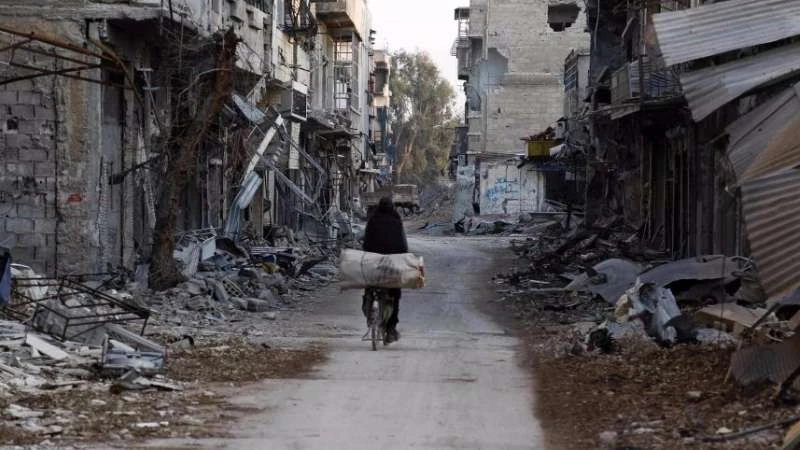The year started as 2015 ended: Merciless Russian and regime air strikes, killing hundreds of innocent civilians every month. The answer of the “international community” and the United Nations was the “Cessation of Hostilities” (CoH), a ceasefire that came into effect in February, never worked and only killed more civilians every month and gave Assad and his masters time to prepare for the final battles around Damascus and in Aleppo.
The siege of Aleppo was the most visible result of the CoH, but sectarian cleansing around the capital was not less significant and unprecedented in Syria’s sixth year of war. The CoH ended with the international coalition’s accidental bombing of regime troops and a revenge Russian air strikes taken on a United Nations relief convoy west of Aleppo. Since then, it got even worse.
Assad and his allies bombed the last necessities of life in Aleppo, not only immensely increasing the suffering for the civilian population but also breaking the resistance of the remaining rebel groups, which resulted in the occupation of the city by Iran’s militias and its complete cleansing of unwanted anti-Assad life.
At the same time, Turkey changed its policy approach on Syria, reduced the support of rebels in the country’s north west and instead started its “Euphrates Shield” operation to clean its southern border from YPG and ISIS forces inside bordering northern Syria. The operation resulted in big territorial gains and captured more than 1400 square kilometers from the two groups. At the same time, the US-led YPG-dominated “Syrian Democratic Forces” also pushed back ISIS north of Raqqa as well as west of the Euphrates, aiming for a possible confrontation with Turkish-led troops in the area. However, the retreat of the terror organization ISIS was possibly the best thing Syria witnessed in 2016.
Only the Assad/Putin/Khamenei coalition was unable and unwilling to efficiently fight ISIS in Syria. The showcase Palmyra turned out to be a mere propaganda victory which ISIS reversed only seven months later as all three strongmen focused on Syria’s rebel groups and not the terrorists from the “Islamic State”. Another proof that all of the three “will never be viable counterterrorism partners” as Senator John McCain correctly stressed less than a week ago.
Last but not least, 2016 impressively and alarmingly proved the diminishing influence of the United States and the European Union in Syria, both vowing a “peaceful, negotiated solution” for the conflict, ignoring facts on the ground and the absurdity of their policy amid Russia and Iran sending in tens of thousands of troops as well as military equipment to solve the conflict forcefully. As a result, the war in Syria will be decided without those “civilized” powers, ignoring their responsibility and instead giving the stage to those, willing to act, despite all criticism of their procedure.
The same is true for the Gulf countries. While the provision of TOW anti-tank missiles in 2015 turned the tide in favor of the rebels who were able to beat Assad forces in many areas (like Idlib and Hama provinces), the same countries not just abstained from providing much-needed anti-aircraft weapons in 2016 but also reduced their supply of conventional weapons such as the TOW. As a result, the rebels had to retreat, unable to cope with the united Russian/Iranian/regime firepower.
In the end of 2016, only three parties remain on the table, namely Russia, Turkey and Iran, which are now openly negotiating Syria’s future on their own. They are the “winners” – in terms of main players – of the war in Syria 2016 with the roles of the regime and the opposition – as well as the west and Gulf countries – decreasing in the conflict and the country’s future.
-------------------------------------------------
Julian Röpcke is a newspaper editor and political commentator, based in the German capital, Berlin. With a degree in Political Geography and Sociology, Mr. Röpcke started analyzing geopolitical conflicts after the US-led invasion of Iraq in 2003. He covered the “Arab Spring” as well as the evolving conflicts in Syria and Ukraine from their very beginning. Julian Röpcke works for BILD, the largest newspaper and leading online news portal in Germany (@JulianRoepcke).



التعليقات (0)